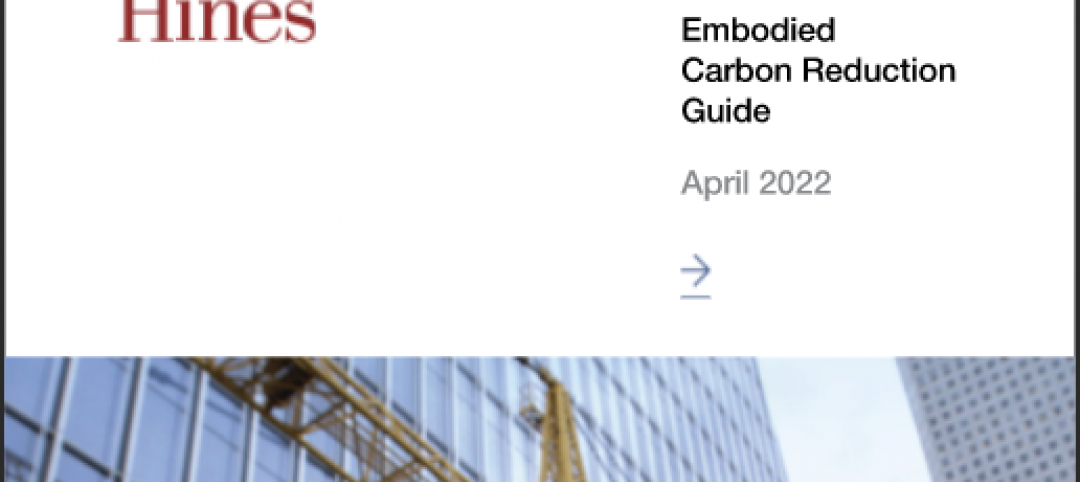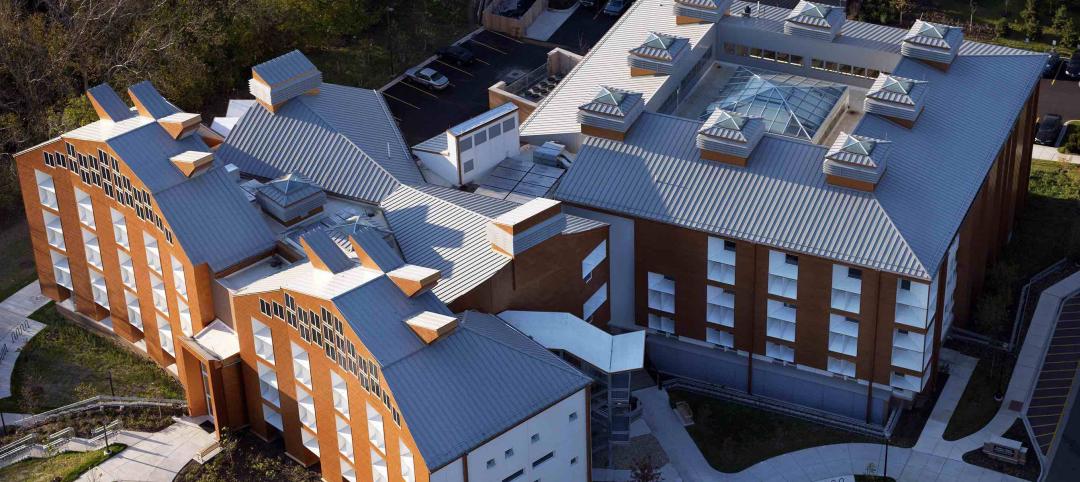The Willis Tower is currently undergoing a more than $500 million renovation that will transition it from an office building into a neighborhood that delivers life and work experiences.
As part of this evolution, Willis Tower, under LEED’s latest v4.1 rating system, has become the largest building in the United States to earn LEED Platinum certification.
In partnership with Rivion, a Wisconsin-based energy consulting firm, EQ, a U.S. office portfolio company wholly owned by Blackstone's real estate funds, improved the building's environmental quality through a number of building enhancements, including:
— Revamping the heating and cooling (HVAC) system through the installation of state-of-the-art technologies, allowing the Tower to heat and cool more efficiently, which is expected to reduce energy consumption by up to 20 percent.
— Reducing heating water energy consumption by replacing electric hot-water generators with natural gas hot-water boilers.
— Upgrading the building's lighting control system and installing energy-efficient LED lights.
— Installing low-flow high-efficiency sink faucets, toilets and urinals, which is expected to cut approximately 30 percent of the building's water consumption (11 million gallons annually).
The driving force behind the Tower's transformation is Blackstone and EQ's mission to create sustainable experiences and make smart choices that improve the space and environment around its properties.
These values are noticeable in the Tower's new 125,000 square feet of tenant-exclusive amenities, as well as the addition of Catalog, the 300,000 square foot retail, dining and entertainment experience at the base of Willis Tower and the soon-to-open 30,000 square foot outdoor deck and garden.
Related Stories
Sponsored | Healthcare Facilities | May 3, 2022
Planning for hospital campus access that works for people
This course defines the elements of hospital campus access that are essential to promoting the efficient, stress-free movement of patients, staff, family, and visitors. Campus access elements include signage and wayfinding, parking facilities, transportation demand management, shuttle buses, curb access, valet parking management, roadways, and pedestrian walkways.
Codes and Standards | May 2, 2022
Developer Hines, engineer MKA develop free embodied carbon reduction guide
Real estate management and investment firm Hines has released the Hines Embodied Carbon Reduction Guide. The free guide, produced with Magnusson Klemencic Associates (MKA), is the result of a two-year effort, relying on MKA’s industry-leading knowledge of carbon accounting and involvement in programs such as the Embodied Carbon in Construction Calculator (EC3) Tool.
Codes and Standards | Apr 28, 2022
Architecture firm Perkins&Will to deliver ‘carbon forecasts’ for clients
Global architecture firm Perkins&Will says it will issue its clients a “carbon forecast” for their projects.
Architects | Apr 22, 2022
Top 10 green building projects for 2022
The American Institute of Architects' Committee on the Environment (COTE) has announced its COTE Top Ten Awards for significant achievements in advancing climate action.
Wood | Apr 13, 2022
Mass timber: Multifamily’s next big building system
Mass timber construction experts offer advice on how to use prefabricated wood systems to help you reach for the heights with your next apartment or condominium project.
Multifamily Housing | Apr 7, 2022
Ken Soble Tower becomes world’s largest residential Passive House retrofit
The project team for the 18-story high-rise for seniors slashed the building’s greenhouse gas emissions by 94 percent and its heating energy demand by 91 percent.
AEC Tech Innovation | Mar 9, 2022
Meet Emerge: WSP USA's new AEC tech incubator
Pooja Jain, WSP’s VP-Strategic Innovation, discusses the pilot programs her firm’s new incubator, Emerge, has initiated with four tech startup companies. Jain speaks with BD+C's John Caulfield about the four AEC tech firms to join Cohort 1 of the firm’s incubator.
Codes and Standards | Feb 21, 2022
More bad news on sea level rise for U.S. coastal areas
A new government report predicts sea levels in the U.S. of 10 to 12 inches higher by 2050, with some major cities on the East and Gulf coasts experiencing damaging floods even on sunny days.
















